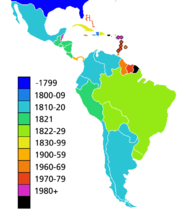 3 UPDATES
3 UPDATES
Does Thailand want to see a
civil war break out? One anti-government army leader sounds as if he is determined to start one.
The Nation, Bangkok
Suspended Army officer Maj Gen Khattiya Sawasdipol announced Saturday that he is a leader of the red-shirt movement and is training the movement's fighters for fighting against the military.
He called a radio programme to say that he had not escaped into Malaysia but he went to Hat Yai on Thursday to train the red-shirt people there.
"We are now at war with the military and I appointed myself a leader of the Democratic Alliance Against Dictatorship to fight for democracy and the red-shirt people accepted this," Khattiya said.
He said he will return to Bangkok Saturday.
Khattiya, alias Seh Daeng, a leader of
Thailand's anti-royalist UDD "red shirts" movement, apparently wants to start a war. The development comes just as high tensions appeared to have begun calming: Suporn Atthawong, another red shirt leader, had decided to
call off a protest scheduled to take place at the Suvarnabhumi
airport. The UDD had seemed poised to copy a terribly disruptive protest held by the yellow shirts in November 2008.
(One yellow shirt leader who supported the storming of Bangkok's international airport just over a year ago today serves as Thailand's foreign minister.)
Who is Maj. Gen. Khattiya (Seh Daeng)?
Wikipedia reports Khattiya went undercover to fight the Vietcong in Laos and later, rebel groups in Ache. And he's written a number of novels.
Prior to the new (pro-military, pro-royalist) government taking office, Khattiya had
vowed to defend the previous government against any coup.
N. Ghosh observed: "Seh Daeng is a larger than life figure in Thailand - a notorious, fearless maverick who famously laughs in the face of enemy fire. He said if it was up to him, he would clear Government House of the PAD protestors in no time. He would first cut off all supplies including water and electricity, then use water cannons on the thousands camped there - and
drop snakes on them from helicopters."
Things began to go seriously downhill for Maj. Gen Khattiya in Nov. 2008 when he was
ordered to teach aerobics classes:
Maj-Gen Khattiya said his new job was not suitable for him, as he considered himself a fighter.
"It is ridiculous to send me, a warrior, to dance at markets," he said. He also blasted the army chief for breaking a gentleman's agreement to promote him after Gen Anupong became the army leader.
Khattiya was
suspended.in December 2009 for making an unauthorized trip outside the country in November
to visit former prime minister Thaksin Shinawatra in Cambodia. (November 2009 was a bad month for Khattiya. He was also sentenced to
12 months in jail in a defamation lawsuit against a former police chief).
Khattiya became a suspect this week, accused of having masterminded
a grenade attack against Thai Army Headquarters (Jotman photo, above, taken
night of 2006 coup, shows the gateway to Thai Army HQ):
The grenade, probably fired from an M79 launcher no more than 400 metres away - the maximum range - hit the kitchen next to the Gen Anupong's office on the sixth floor of the building. The grenade exploded causing damage to the wall and the glass window. (Important: see UPDATE 2)
According to
an earlier article today (same paper), Khattiya was to surrender "in a few days":
Speaking in a phone interview, Khattiya said he was not running away and was staying in Songkhla to "wait and see". He denied being behind the grenade attack, saying he was not in the city at the time it took place - around 3am on January 14.
"I need to see whether my arrest warrant is issued at the request of a civilian or a military unit. I will have my lawyers seek to have it voided on Monday. Under normal procedures, an arrest warrant can be issued for a commissioned Army officer only after two summons are issued," he said. Khattiya said he did not own any illegal explosives and war weapons found in his house could have been planted there by military policemen participating in the raid.
Understandably, "Security at all Army barracks and arms depots has reportedly been heightened to prevent possible attacks or sabotage following the Army's action against Khattiya." Accusations are likely to fly that Khattiya is acting and speaking with the approval of Thaksin.
UPDATE 1: It should be noted that Saturday was not the first time Khattiya has threatened to wage war.
On Jan. 13 The Nation reported, "Khattiya, better known as Seh Daeng, yesterday threatened to 'get even' with his bosses for suspending him from duty. 'A suspension means I become a civilian. So I will be ready to wage a guerrilla warfare in fighting against the powers-that-be,' he said."
UPDATE 2: It seems
the story of the attack on the Thai Army Headquarters may not be true. PTT blogger examines the conflicting news reports, the absence of photos, disappearing evidence, and a denial of the attack
by the military.
Nanuam of the
Bangkok Post also surveys the conflicting claims, noting that after quickly making repairs and cleaning up the debris in his office, General Anupong reported the incident to the Bangkok police chief and police investigators.
UPDATE 3: Perhaps relevant to events discussed in this post, in December, Prem, who heads HM the King's Privy Council, distributed copies of an article warning that Thailand was already in the early stages of "civil war." The alarmist article, published on Dec. 28 at
Naew Na was written by Chimsak Pinthong, a critic of Thaksin (h/t Philip
Golingai). PTT has
summarized the article which, notably, warns of "General Chavalit Yongchaiyudh and the Class 10 army officers who are 'on the march' for Peua Thai and loyal to Thaksin.
They are a minority, unlike the police who remain loyal to Thaksin, as evidenced by their failure to investigate the attacks on “peaceful PAD rallies, causing several deaths.”
Events since the publication of Chimsak's article prompt various questions: Might the Royalist faction want to
make it look as if civil war is breaking out? Would exaggerating the threat of war not make it easier justify a major crack down on the UDD/Red Shirts? Where does Khattiya stand in all this? Might he have been framed? What about his statements to
The Nation quoted above? Perhaps quotes attributed to Khattiya are no more accurate or reliable than the various news reports of the grenade attack and suggestions Khattiya's involvement (See Stig's comment).
What timing: Within a fortnight of the appearance of an article warning of civil war -- a polemic publicized by the man some Thais consider to be the country's highest-ranking Yellow Shirt -- a high-ranking Red Shirt army officer is quoted in the press having
declared civil war. And the same high-ranking officer suddenly becomes a suspect in a bombing -- a bombing for which there seems to be
no evidence!














